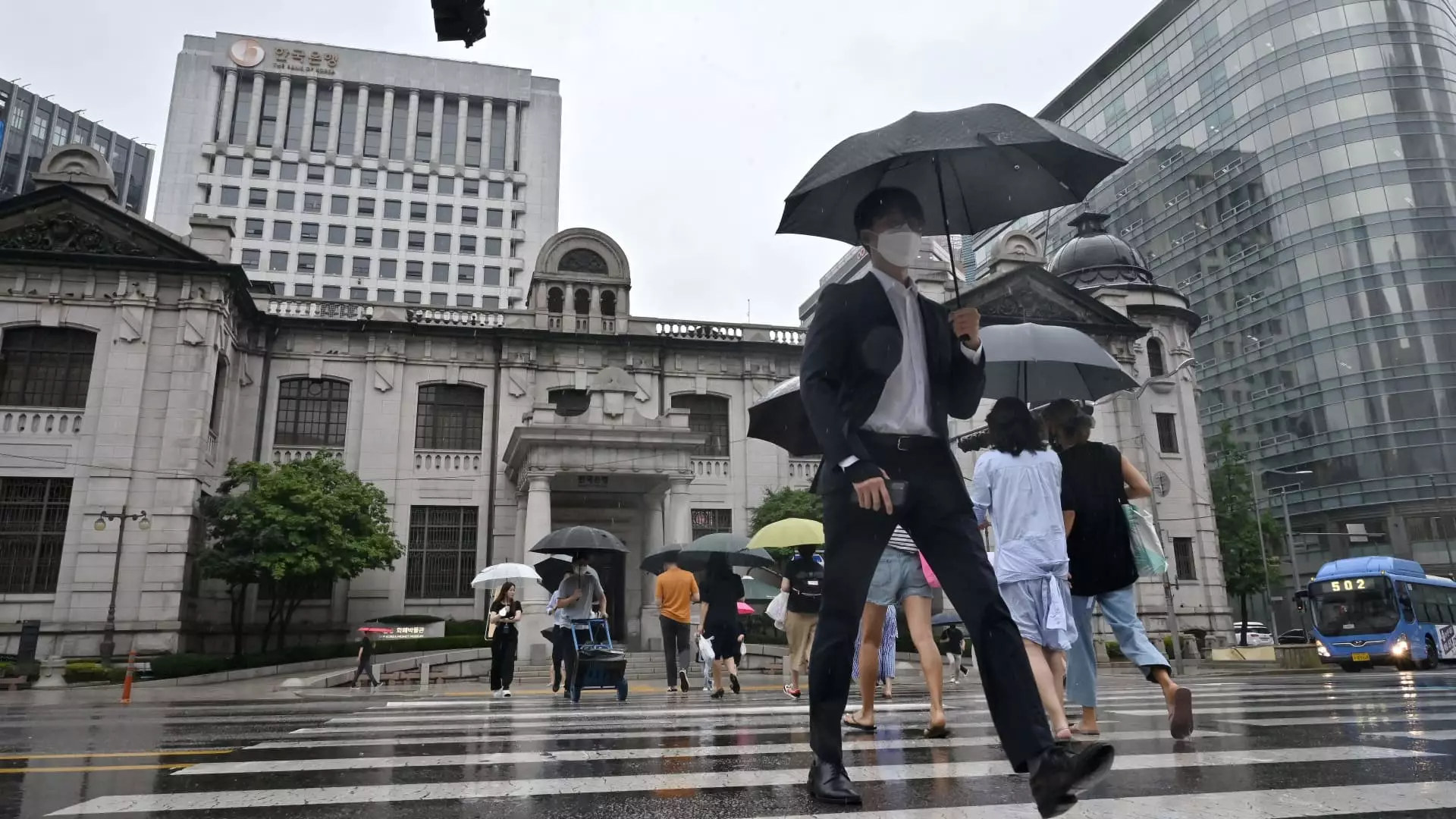In a significant policy shift, South Korea’s central bank has announced a 25-basis-point cut to its benchmark interest rate, lowering it to 3.25%. This decision marks the first rate alteration by the Bank of Korea (BOK) since the Federal Reserve began tightening its monetary stance in March 2022. This reaction aligns with forecasts from financial analysts, particularly those surveyed by Reuters, indicating growing consensus on the necessity for a rate adjustment to better reflect the evolving economic landscape.
This rate cut is largely prompted by a decline in South Korea’s inflation, which had dipped to its lowest level in over three years—recording only 1.6% in September, significantly below the BOK’s target of 2%. Such a decisive drop in inflation suggests that the economy is entering a phase of increased price stability, a sentiment echoed by the Bank’s recent statements. The BOK emphasized that inflation appears to be stabilizing, and concurrent trends indicate a slowdown in household debt growth, as well as a diminishing risk in the foreign exchange sector.
Reflecting on the BOK’s trajectory, it is crucial to recognize that the bank had steadily raised interest rates over the 16 months leading up to January 2023. Cumulatively, the rate increase totaled 300 basis points, peaking at a 15-year high of 3.5%. This tightening occurred amidst a landscape of soaring inflation, which peaked at a staggering 6.3% in July 2022. The rate hike spree was seen as a necessary countermeasure to combat inflationary pressures that had markedly escalated during this period.
Experts Weigh In
Market analysts are seeing this move as indicative of a broader trend. Park Seok Gil, the chief economist for Korea at JPMorgan, remarked that the BOK’s rate cut is a step towards normalizing its monetary policy rather than merely responding to a decline in domestic demand. By adjusting rates, the BOK aims to stimulate aspects of consumer spending that have been lagging. Echoing these sentiments, Kathleen Oh, the chief economist for Korea at Morgan Stanley, highlighted that the conducive macroeconomic conditions, particularly the favorable inflation landscape, had made this cut long-awaited.
The implications of this decision extend beyond immediate economic relief. Should the BOK continue on this path of downgrading its tightened policy stance, analysts predict a potential cumulative reduction of about 75 basis points. Such a development could bolster private sector consumption, providing essential support for economic recovery. Given that housing demand has weakened—a principal concern that previously deterred rate cuts—the BOK now finds itself in a more favorable position to adopt a more dovish policy stance.
As South Korea navigates this critical juncture in its monetary policy, the recent interest rate cut serves as a vital indicator of both the bank’s strategic recalibration and the wider economic realities. With inflation stabilizing and the demand landscape changing, these rate cuts may not only foster immediate economic activity but also reshape the country’s fiscal future in a global context. Ultimately, the BOK’s decisions will play a pivotal role in ensuring continued growth and stability in an ever-fluctuating economic sphere.


Leave a Reply